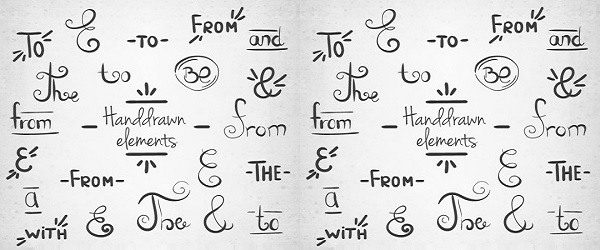
A mood shows the writer's attitude toward what he or she is saying. "Subjunctive mood" expresses a doubtful condition (contrary to fact) and is sometimes used with the "if" clause. It can express wishes, doubts, suggestions, conditions, possibilities, etc. A verb in the subjunctive mood may have a different form.
Subjunctive Mood - Common verbsThe following verbs often attract the subjunctive mood: ask, doubt, recommend, suggest, wish, insist, order, commend, request, and demand.
- I suggest that you hire a lawyer.
- I doubt we will see her at the party.
Subjunctive Mood - Verb form using "Were"Also in subjunctive mood sentences, the "be" verb in past tense "were" is used instead of "was" even with "I", "he", "she", or "it". It is grammatically incorrect to use "was" in these sentences
Incorrect: If I was you, I would take any offer.
Correct: If I
were you, I would take any offer.
Incorrect: I wish I was able to speak English fluently.
Correct: I wish I
were able to speak English fluently.
Subjunctive Mood - Other verb formsThe subjunctive for the present tense third-person singular drops the "-s" or "-es" so that it looks and sounds like the present tense for everything else.
Incorrect: Our suggestion is that everyone on the team does the survey.
Correct: Our suggestion is that everyone on the team
do the survey.
Incorrect: She recommended that each student takes a note.
Correct: She recommended that each student
take a note.
Directions: Choose the correct answer.
1) If I __________ you, I would buy the car.
a. was
b. were
2) If you had __________ earlier, you would have met my friend.
a. arrive
b. arrived
3) Our recommendation is that everyone __________ a copy of their passport.
a. make
b. makes
4) I wish I __________ a good cook.
a. was
b. were
5) We ask that everyone __________ a review of the product.
a. write
b. writes
Directions: Select the sentence that is in the subjunctive mood.
1) a. If I were you, I wouldn't buy that house.
b. I am not buying that house.
2) a. She heard the news.
b. If she were listening, she would have heard the news.
3) a. I am very organized.
b. I wish I were more organized.
4) a. I recommend that you read the directions first.
b. Read the directions carefully.
5) a. I insisted that people take their shoes off before entering the house.
b. Please take your shoes off before entering the house.
Quiz 1 Answers
1) b. were
2) b. arrived
3) a. make
4) b. were
5) a. write
Quiz 2 Answers
1) A
2) B
3) B
4) A
5) A